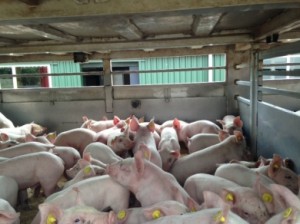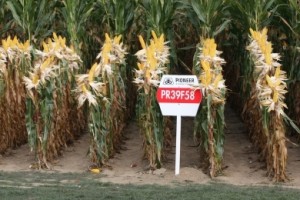Worldlog Settimana 6 – 2014
Finalmente il controllo dei trasporti degli animali ritorna nelle mani del governo. Già nel 2011 ho proposto una mozione su questo argomento, la quale ha avuto il supporto della maggioranza. Abbiamo comunque dovuto aspettare fino al 2014 prima che anche il segretario vedesse che non si poteva andare avanti così. Finalmente il segretario Dijksma di Economia ha fatto sapere la settimana scorsa che non riconosce più il sistema di controllo e supervisione del settore del trasporto degli animali e riprende in mano di nuovo la responsabilità.
Ogni anno milioni di animali entrano ed escono in dei camion. Spesso i trasporti vedono coinvolta della sofferenza per gli animali. Gli animali stanno spesso oltre otto ore in camion strapieni senza mangime ne acqua. La legislazione esistente per tutelare gli animali non viene rispettata bene e negli ultimi anni è stata tagliata drasticamente la supervisione statale. L’autoregolazione del settore del trasporto degli animali non funziona. La Camera è stata chiara: il governo deve prendersi la responsabilità di fare il suo dovere; legislazione, controllo e far rispettare la legge. Neanche i controlli della velocità dell’automobile vengono dati in mano agli autisti stessi. Siamo contenti che alla fine la supervisione torni dal governo e continueremo ad impegnarci per fermare il trasporto degli animali!
La settimana scorsa, mia collega Esther Ouwehand ha lavorato contro l’introduzione di un nuovo cibo geneticamente manipolato nella UE. La Commissione Europea sta per consentire l’agricoltura del mais geneticamente manipolato prodotto da Pioneer, specie 1507. Se questo succede, tutti i membri dell’Unione Europea saranno obbligati a consentire l’agricoltura di questo cibo controverso sulla loro terra.
I paesi che non vogliono rischiare con la tecnologia genetica, come l’Austria e la Francia, stanno già protestando da parecchio tempo. I Paesi Bassi ancora non hanno fatto sapere chiaramente qual’è la loro posizione, mentre potrebbe essere fondamentale nella decisione relativa alla domande se consentire questa agricoltura nella intera UE. Abbiamo quindi chiesto al nostro governo di dare priorità alla libera scelta del popolo, dei contadini e degli stati membri e di votare CONTRO l’arrivo dei cibi geneticamente manipolati.
Noi rifiutiamo fortemente la manipolazione genetica e troviamo che i paesi non possano essere costretti a consentire l’agricoltura dei cibi genetici sulla loro propria terra. Il controverso mais di Pioneer è una pianta geneticamente manipolata che rilascia in continuo una sostanza velenosa. Il veleno che viene prodotto dalla pianta è inteso per uccidere un bego che mangia il mais ma danneggia anche altre farfalle e falene. Inoltre, la pianta è stata resa resistente contro i pesticidi contenenti di glufosfinato. Gli scienziati avvisano che rendere i cibi resistenti, stimola l’utilizzo dei pesticidi. Nello stesso tempo Bruxelles sta per consentire un cibo geneticamente manipolato che è resistente ad un sostanza con grandi rischi per i mammiferi ed altri organismi. Proprio per il rischio del glufosfinato, si cerca di restringere l’utilizzo di questo pesticida. Speriamo che il nostro governo capisca il pericolo di consentire il mais geneticamente manipolato e lo fermerà!
E’ deprimente leggere come stanno la Bulgaria e la Romania. Leggete qui il blog nell’Economist sulla situazione in questi due paesi.
Anche questa settimana una foto di @Fascinatingpics: Freefall!
Alla prossima settimana!
Marianne
The control of animal transportation will at last go back into the hands of the government. In 2011, I already laid down a motion on this, which was then also supported by the majority, yet we had to wait until 2014 before the State Secretary finally realised that animal transportation couldn’t go on like this. State Secretary Dijksma of Economic Affairs finally informed us last week that she no longer acknowledges the supervision and control system of the animal transportation industry and that she is taking responsibility into her own hands again.
Each year, millions of animals are transported across the borders. Those transportations regularly involve animal suffering. Animals often have to stand in overcrowded lorries for more than eight hours without any food or water. Animal protection regulations are seriously violated and drastic cuts were imposed on government control over the past years. Self-regulation within the animal transportation industry is obviously not working. The Lower House was clear: The government must do what it is there to do, namely to set standards, and to control and maintain them. You would not opt for car drivers to perform their own speed checks either. We are glad that the supervision is given back to the government and we will continue to do our best to stop them mucking about with animals.
Last week, my colleague Esther Ouwehand made out a case against the introduction of a new GM crop in the EU. It is feared that the European Commission will permit the growing of the genetically modified maize line 1507 of Pioneer. If that happens, all European Member States will have to allow the growing of the controversial crop on their lands.
Countries that do not want to run risks with genetically engineered foods like Austria and France have been objecting for a long time. The Netherlands has still not made clear its position on this, while this can be the determining factor in reaching a decision on permitting this crop in the entire EU. We have therefore urged our government to put the choice of civilians, agriculturists and Member States first and foremost, and to vote against permitting such new GM crops.
We resolutely reject genetic modification and feel that no country should be forced to have GM crops grow on their lands. The controversial maize of Pioneer is a genetically modified plant, which releases a poisonous substance. The poison produced by the plant itself is intended to eliminate the corn borer, but is harmful to butterflies and moths at the same time. Additionally, the plant has been made resistant to pesticides containing gluphosinate. While scientists warn that the use of pesticides will increase when crops are made resistant, Brussels is on the verge of accepting a GM crop that is resistant against a pesticide that has great risks for mammals and other organisms. Because of the dangers of gluphosinate, it is tried to restrain the use of this pesticide. Hopefully our government will also see the dangers of allowing genetically modified maize and stop it!
It is depressing to read how Bulgaria and Romania are doing. Read here the blog in the Economist about the situation in those two countries.
And this week again a picture of @Fascinatingpics: Freefall!
Until next week!
Marianne

